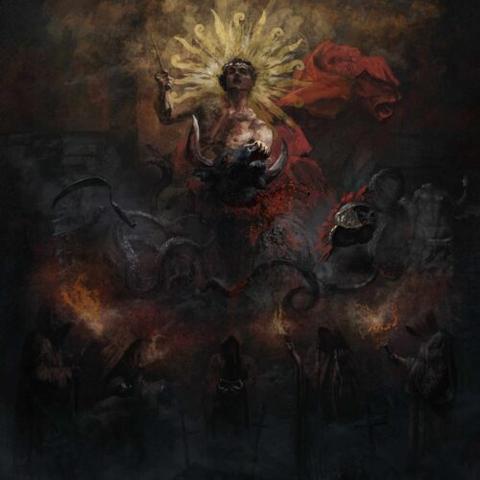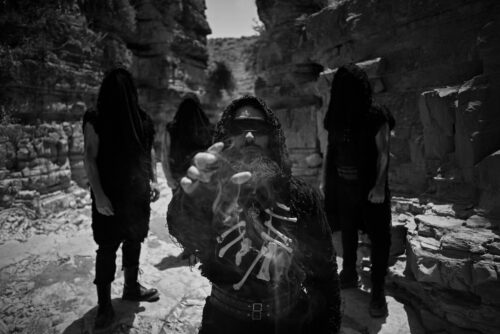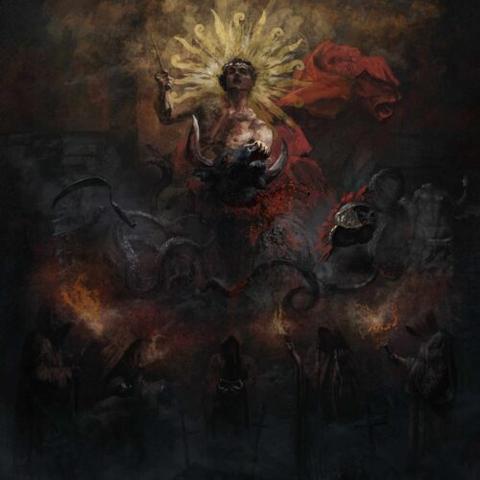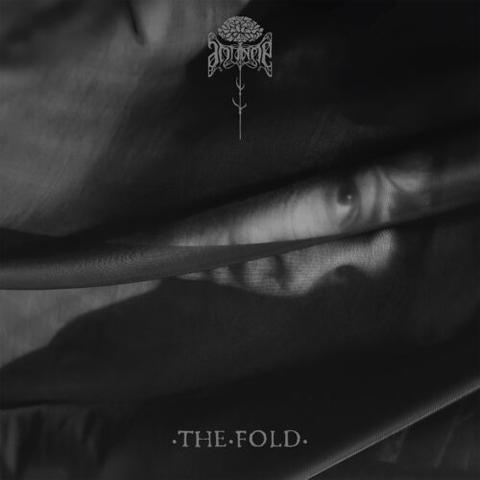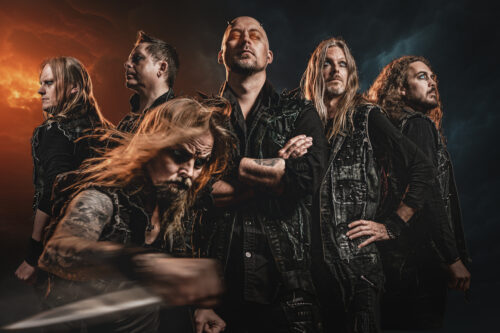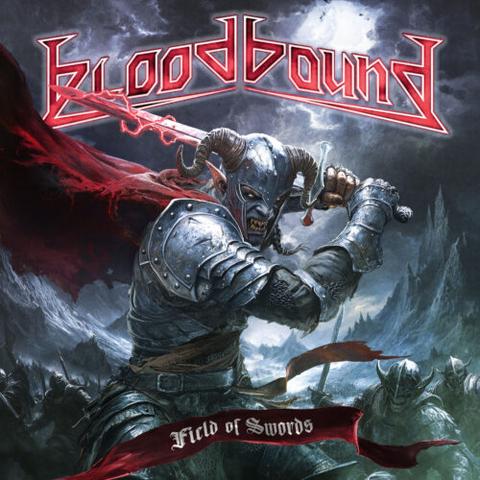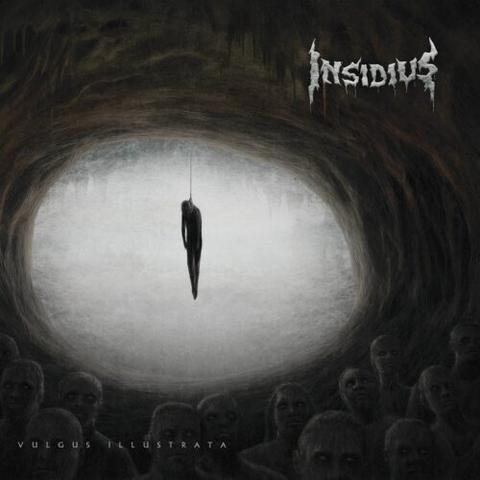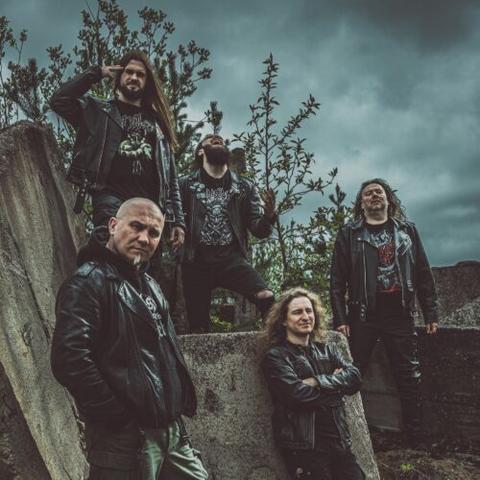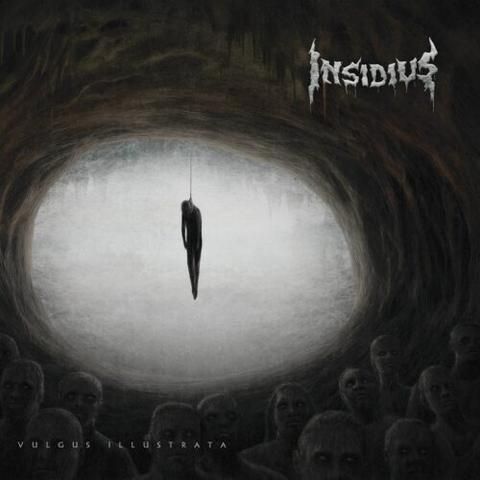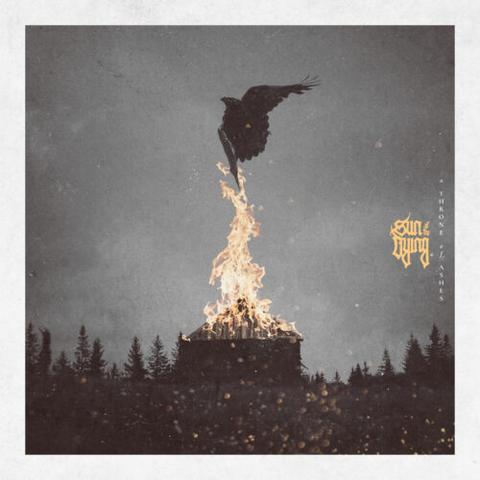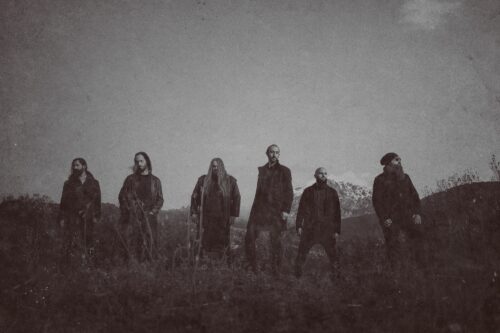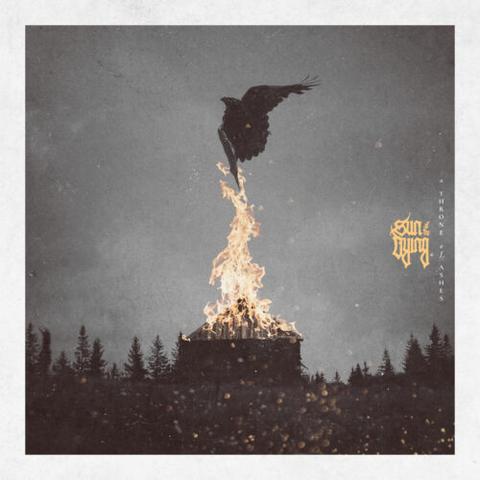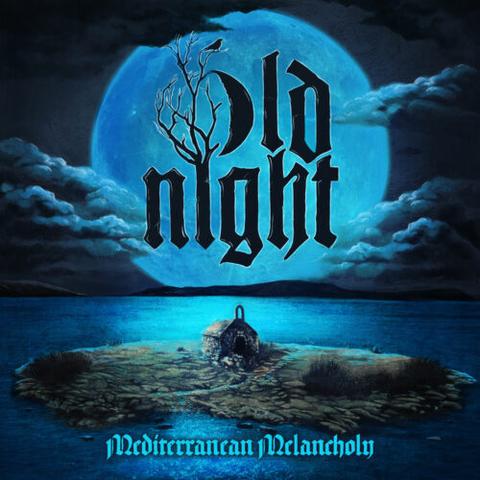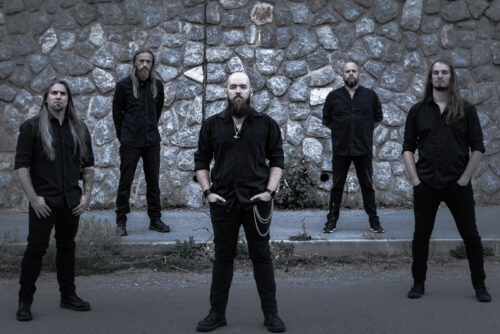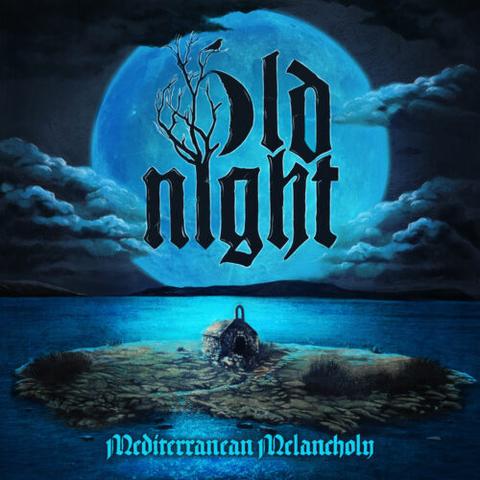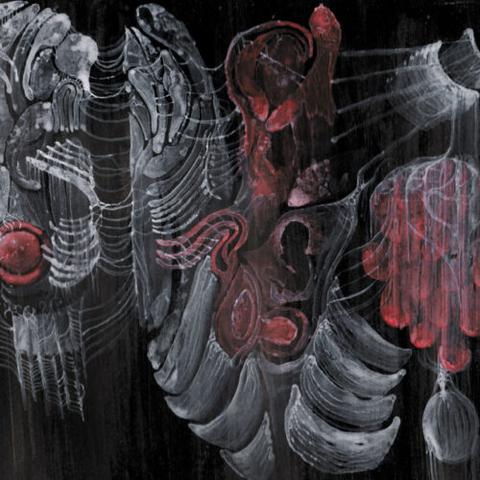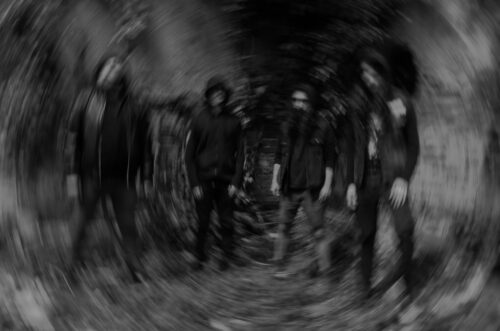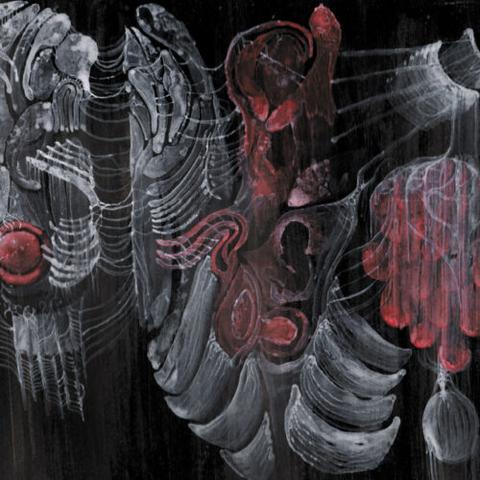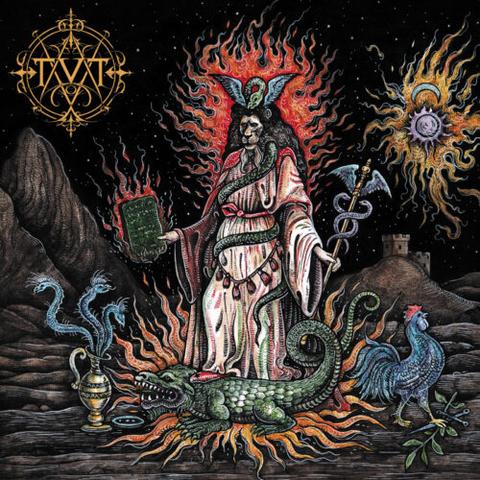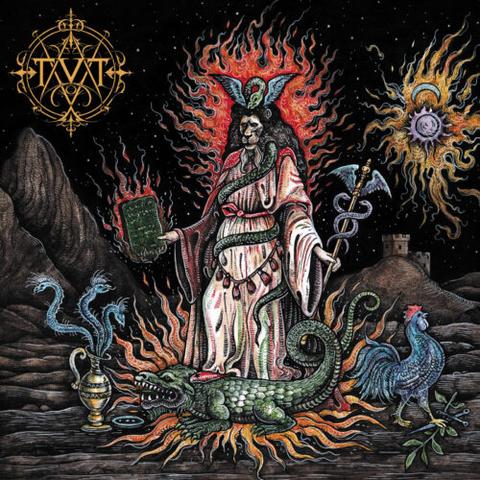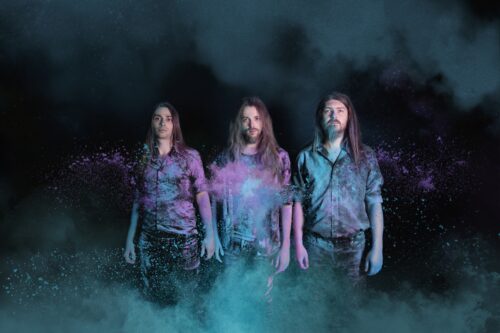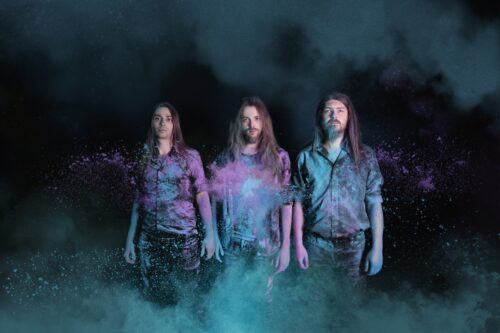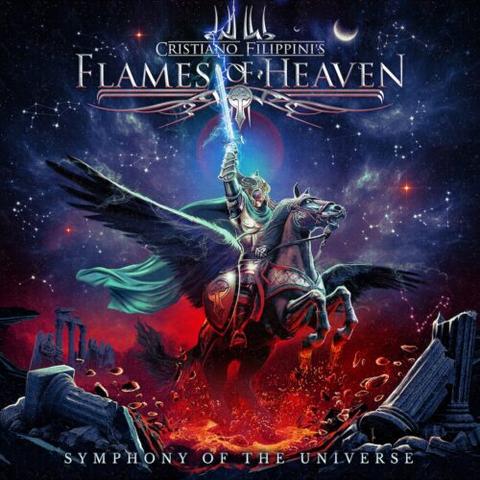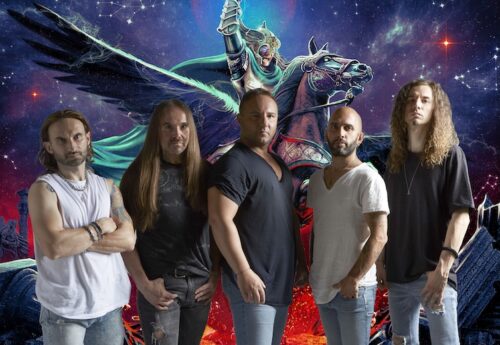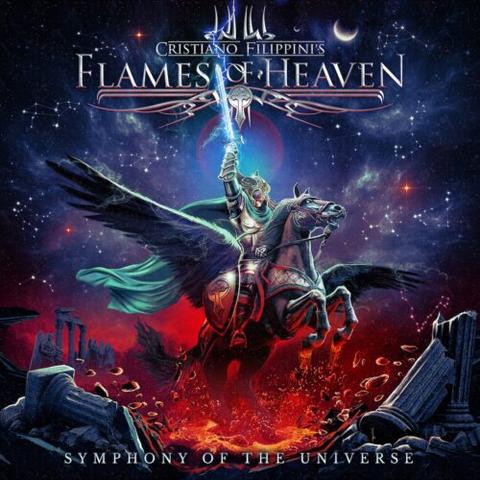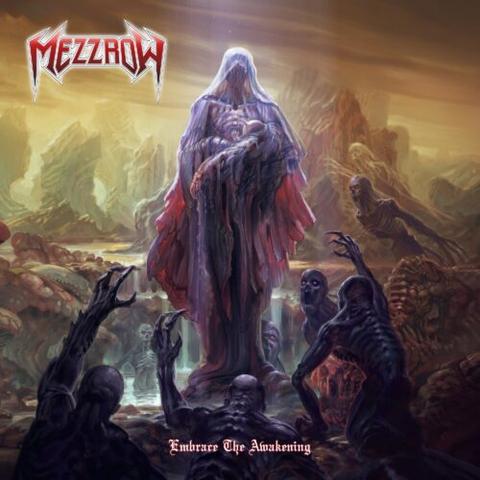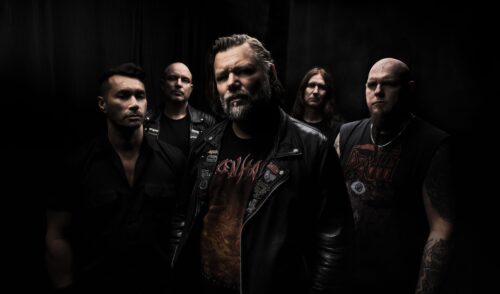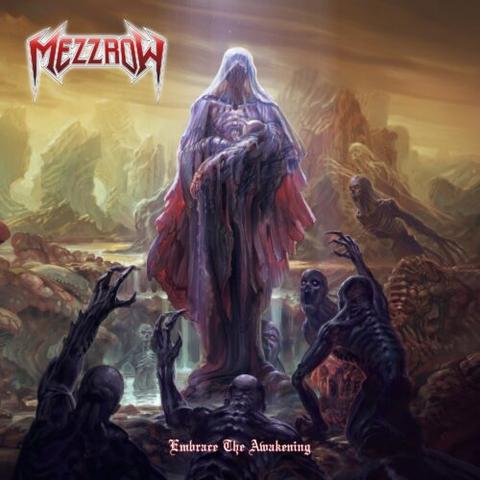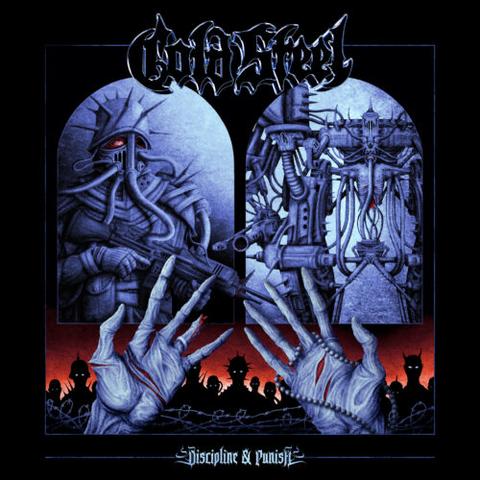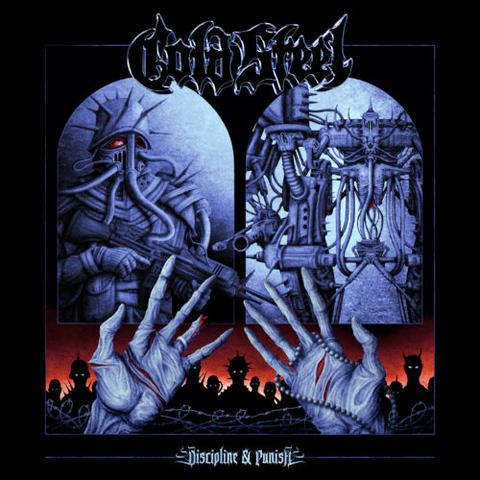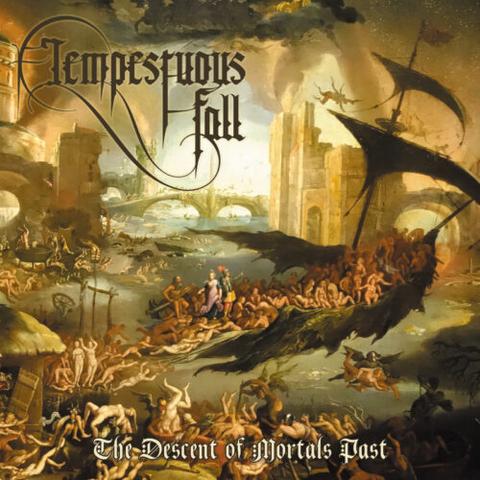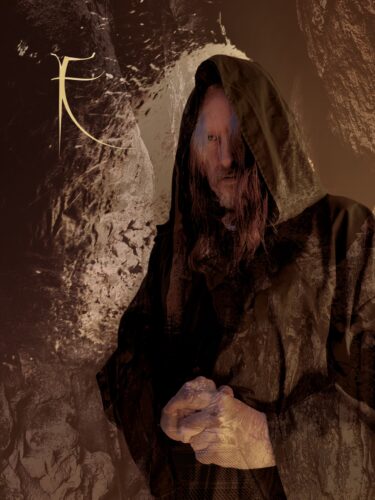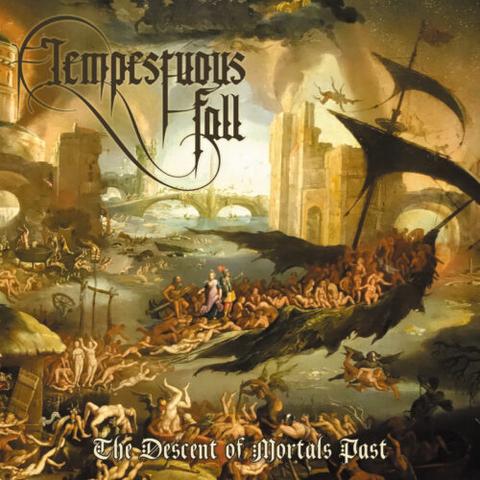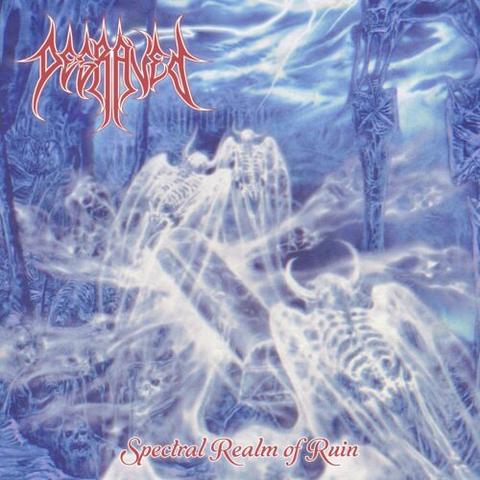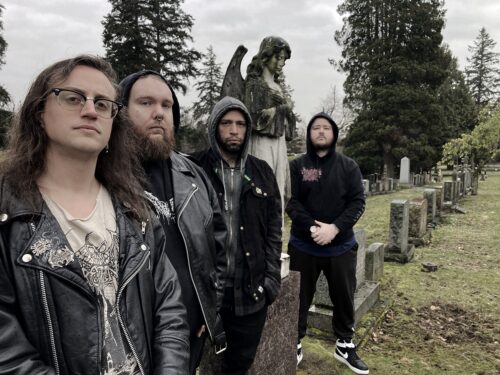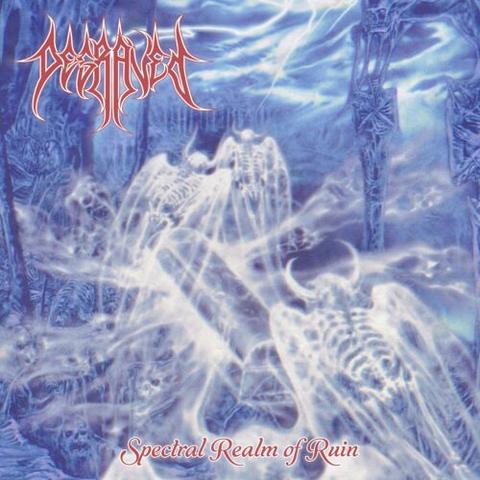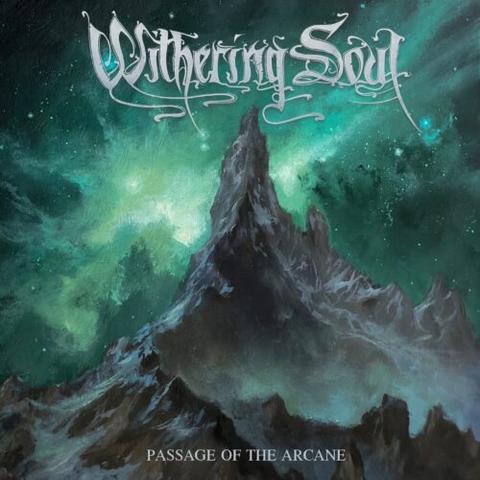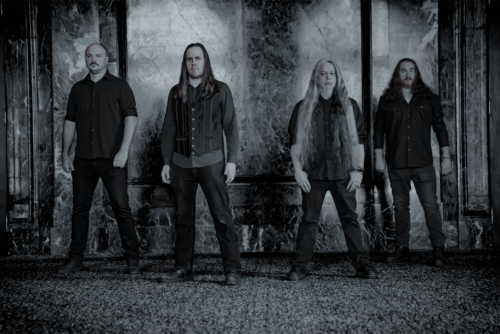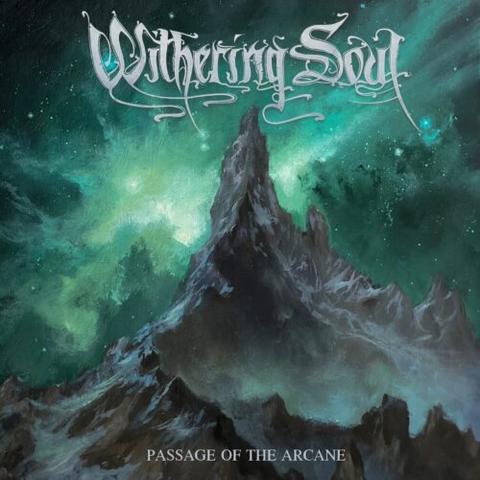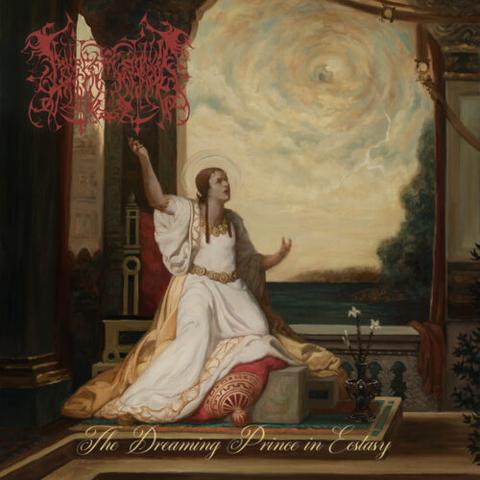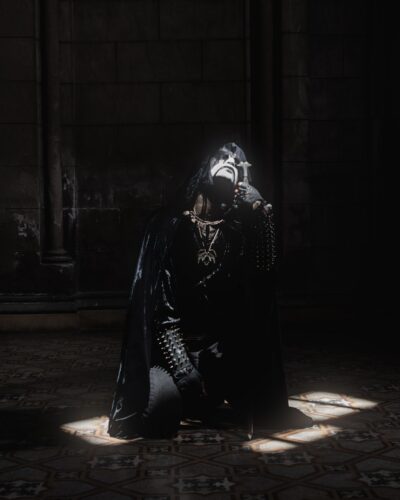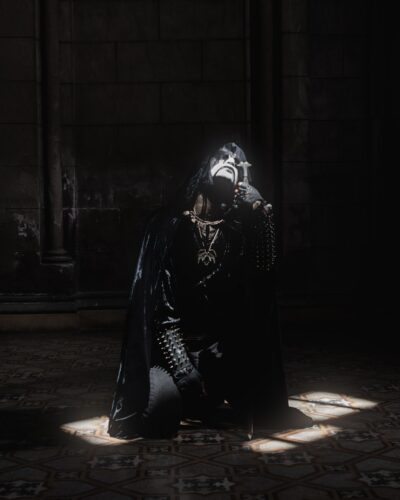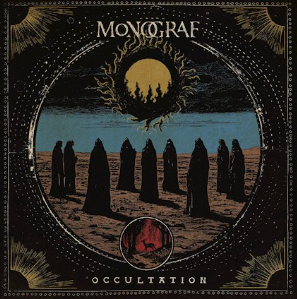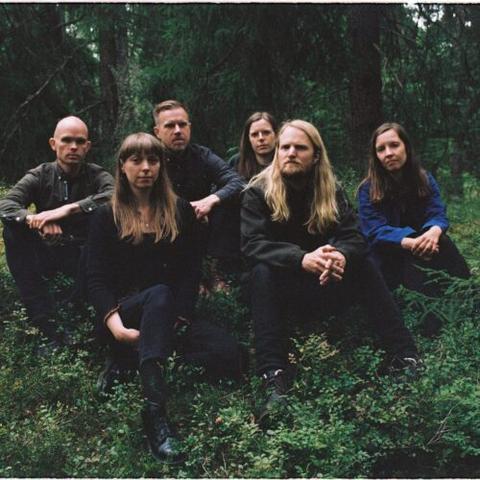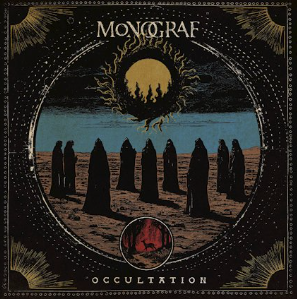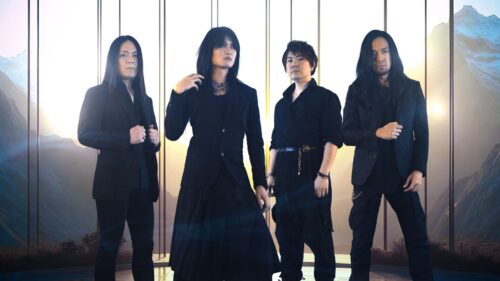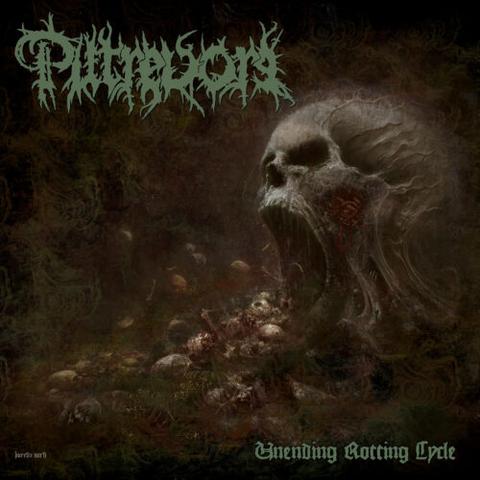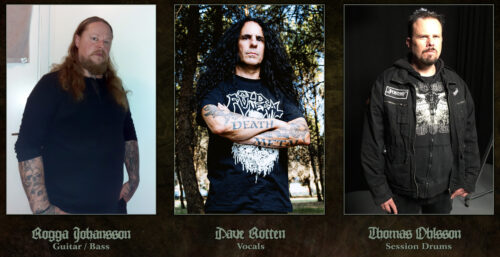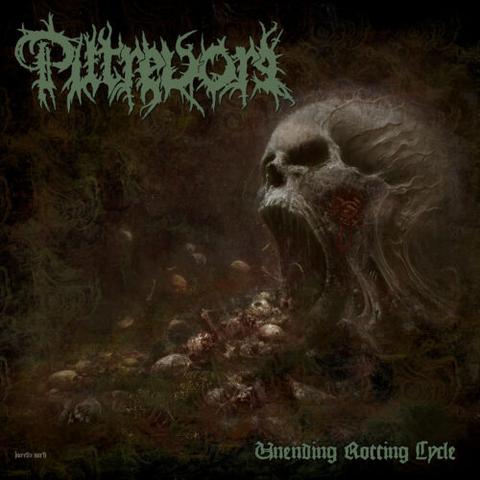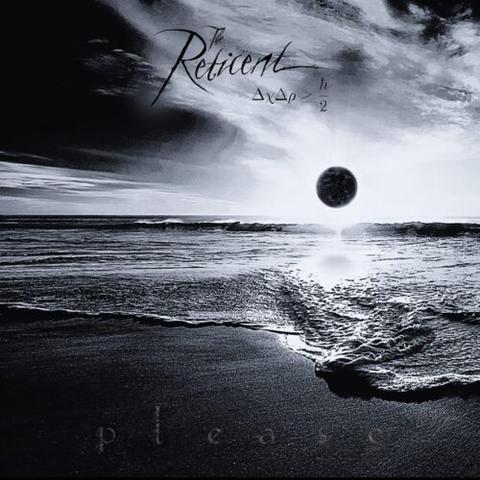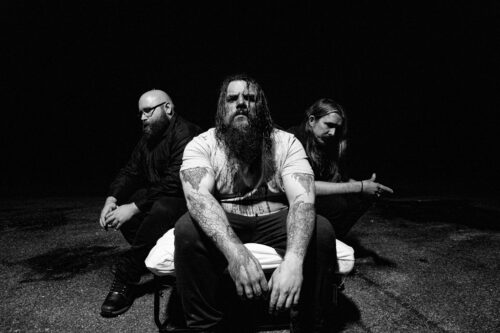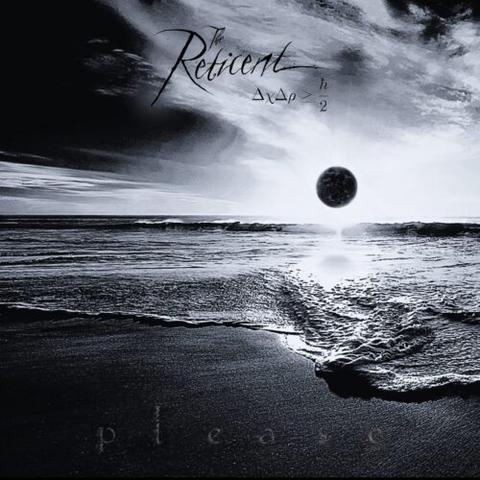Ildaruni – Divinum Sanguinem Review
By Andy-War-Hall
The mystic, the subliminal, the macabre: the fixings of good black metal and the bread and butter of Armenian pagans Ildaruni. Four years ago, they entered the blackened sphere with their debut Beyond Unseen Gateways, a folk-infused take on black metal that, while promising in several regards, felt bloated and unfocused. Its pagan, medieval-y acoustic passages felt tacked on, lethargic and a bit hokey, and I think Ildaruni agree with my assessment, as this year’s Divinum Sanguinem ditches the lutes and stuff for “a more tenebrous and ferocious black metal path.” At nine songs and 53 minutes, Divinum Sanguinem is yet another considerable offering from Ildaruni. Will this one prove more vital than the last?
This time, Ildaruni ain’t faffing about;1 Divinum Sanguinem is out for blood. Second-wave styling permeates Divinum Sanguinem, but without its typical murk. Utterly furious tremolo riffs and blast beats abound, wrought to vicious effect on songs like “Forged with Glaive and Blood” and “The Ascension of Kosmokrator,” while Narek Avedyan’s burly shrieks command the calamity into a lean, focused undertaking. This is black metal of a riff-centric nature, Immortal-like, but with the odd Bathory military march (“The Ascension of Kosmokrator”) and chant (“Zurvan Akrane”) to instill a greater sense of grandeur into Iladruni’s palette. Riffs are a’plenty, but it’s drummer Arthur Poghosyan who steals the show, just crushing the blasts on every song and layering everything with impressive symbol work. Divinum Sanguinem is a hefty record, but unlike Beyond Unseen Gateways, it isn’t bogged down with momentum-killing diversions. Exemplified on “Divinum Sanguinem”—where all eight minutes of imperial procession feel, bombastic dynamics and eerie bridges feel critical and purposeful—Divinum Sanguinem is lean, mean and blackened as anything.
Ildaruni hold a workman-like commitment to evil. There’s an Emperor-like dark majesty to Divinum Sanguinem, though Ildaruni forgo synths and orchestras for grandiose guitar leads to accomplish this (“The Ascension of Kosmokrator,” “Divinum Sanguinem”). Thrash riffs grace “Zurvan Akrane” beside metalface-inducing chugs on “Forged with Glaive and Blood” and “Arcane Sermon,” and even instances of Qanun (“Scorching Pathways to Samachi”)2 and bagpipe (“Forged with Glaive and Blood”)3 add to the sinister feel of Divinum Sanguinem. Similarly, the various instances of choir (“Of Nomos and Flaming Flint Stone,” “Arcane Sermon” and “Scorching Pathways to Samachi”),4 chant and clean singing (“Divinum Sanguinem”)5 add dimensions to the vocal front of Ildaruni, breaking from the incessant shrieks but not from its malignancy. Pagan folk elements from Iladruni’s previous work remain, but are relegated to folkish distorted guitar leads (and bagpipes) to keep from clashing with the breakneck nature of Divinum Sanguinem. Sometimes ritualistically ominous (“Divinum Sanguinem”) and frequently hostile (“The Ascension of Kosmokrator”), Ildaruni crafted something pointedly dark with Divinum Sanguinem.
But Ildaruni play a limited, well-trodden style, and Divinum Sanguinem is stretched too thin to inspire frequent replay. While Divinum Sanguinem’s songs feature brief moments of differentiation, the near constant tremolos, blast beats and shrieks that encompass the majority of most tracks lose their lustre with use. If a song doesn’t immediately open with trems and blasts, like on “Of Nomos and Flaming Flint Stone” or “Zurvan Akrane,” rest assured that they’ll reemerge before the verse, still competently played but with little melodic variation between them all, losing effect with overexposure. The near-uniformity of Ildaruni’s track lengths adds to this sense of sameness, as songs seem to go through the same or similar motions for similar amounts of time, which doesn’t bode well for memorability. An exception to this trend, “Immersion into Empyrean”— with its mid-paced tempo and open arpeggios—is borderline catchy and provides a stark illustration of how one-note much of the rest of the album is. Ildaruni are all business here, but there’s too much business on Divinum Sanguinem and not enough variety, novelty or abundance of hooks to make getting through it consistently engaging.
Though Divinum Sanguinem is marred by considerable songwriting issues, it still marks considerable improvement for Ildaruni and proves there’s a future for the band. When it works, Divinum Sanguinem is a powerhouse of a record, both atmospheric and immediate. When Ildaruni’s tricks run dry, however, it becomes too easy to let the music slip into the background. Perhaps genre diehards will get more out of the album than I did, but I found myself losing interest too often to offer it high marks. Still, if you’re in the market for black metal that riffs hard, you could do a lot worse than Divinum Sanguinem.
Rating: Mixed
DR: 6 | Format Reviewed: 320 kbps mp3
Label: Black Lion Records
Websites: ildaruni.bandcamp.com | facebook.com/Ildaruni | instagram.com/ildaruni
Releases Worldwide: November 7th, 2025
#25 #2025 #armenianMetal #bathory #blackLionRecords #blackMetal #divinumSanguinem #emperor #ildaruni #immortal #nov25 #review #reviews
